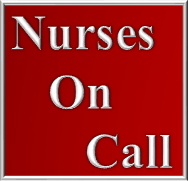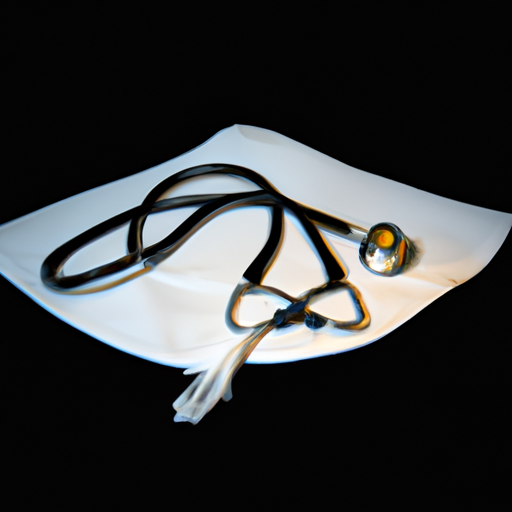Looking for a reliable nurse staffing agency in Pensacola, FL? Look no further than Nurses On Call. With over 25 years of experience, Nurses On Call specializes in matching skilled RNs and LPNs to medical facilities on a temporary or semi-permanent basis. Our nurses have a minimum of one year of current nursing experience, ensuring quality care and seamless integration into existing staff. With 24/7 on-call service, local support staff, and an on-site Director of Nursing, we provide a full-service experience like no other. Whether you’re a nurse looking to advance your career or a medical facility in need of additional staff, call us today at 850-474-9803 and discover how Nurses On Call can help you.
License Verification for Nurses On Call
As a nurse staffing agency, Nurses On Call understands the importance of license verification in ensuring the safety of patients and maintaining professional standards. License verification is the process of validating nurses’ qualifications and confirming the validity and currency of their licenses. By verifying licenses, healthcare facilities can enhance patient safety, improve the quality of care, minimize legal risks, and promote transparency and trust. In this article, we will explore the process of license verification, the benefits it brings, and the various methods and tools that can be utilized to streamline the verification process.
Why License Verification is Important
License verification plays a crucial role in protecting patients’ safety, validating nurses’ qualifications, and maintaining professional standards. By verifying licenses, healthcare facilities can ensure that nurses have the necessary knowledge, skills, and experience to provide safe and effective care. This verification process helps to prevent unqualified individuals from practicing as nurses, which can potentially compromise patient safety and the quality of care provided. Additionally, license verification helps to maintain the reputation and trust of healthcare facilities, as it assures patients and their families that they are receiving care from qualified and competent professionals.
The Process of License Verification
The process of license verification typically involves collecting nurse information, contacting state nursing boards, submitting verification requests, and confirming the validity and currency of licenses. To initiate the verification process, healthcare facilities collect relevant information about the nurse, such as their full name, license number, and state of licensure. This information is then used to contact the appropriate state nursing boards, who hold the licensing information for nurses within their jurisdiction. Verification requests are submitted to these boards, requesting confirmation of the nurse’s license status, any disciplinary actions taken against them, and the validity and currency of their license. By obtaining this information, healthcare facilities can ensure that the nurses they hire are qualified and meet the necessary licensing requirements.
Benefits of License Verification
License verification brings various benefits to healthcare facilities, including enhanced patient safety, improved quality of care, minimized legal risks, and avoidance of fraudulent practices. By verifying licenses, healthcare facilities can ensure that their nurses have the necessary qualifications and meet the required standards of practice. This, in turn, leads to enhanced patient safety, as qualified nurses are better equipped to provide safe and effective care. Additionally, license verification helps to improve the overall quality of care provided, as it ensures that nurses have the appropriate knowledge and skills to deliver optimal patient outcomes. Furthermore, by verifying licenses, healthcare facilities can minimize legal risks associated with hiring unlicensed or unqualified nurses, protecting themselves from potential lawsuits and liabilities. Finally, license verification helps to prevent fraudulent practices, as it ensures that nurses are who they claim to be and that their credentials are valid.
Ensuring Compliance with State Regulations
License verification is essential for ensuring compliance with state regulations governing nursing practice. Each state has specific licensing requirements that nurses must meet to practice legally within that jurisdiction. By understanding these requirements and adhering to mandatory verification protocols, healthcare facilities can ensure that they are in compliance with state regulations. It is crucial for healthcare facilities to stay updated with any changes or updates to these regulations, as failure to comply can result in legal penalties and consequences. By conducting regular license verification and staying informed about state licensing requirements, healthcare facilities can avoid potential legal issues and ensure that they are providing care by the book.
Streamlining the License Verification Process
To streamline the license verification process, healthcare facilities can implement automated systems and utilize electronic verification methods. By incorporating automated systems, healthcare facilities can reduce the time and effort required for license verification. These systems can collect and store nurse information, automatically generate verification requests, and track the progress of each verification. Electronic verification methods, such as online databases and third-party verification services, can also greatly expedite the verification process. Healthcare facilities can explore online databases and access state nursing boards’ websites to obtain license information quickly and efficiently. Additionally, third-party verification services can be utilized to ensure comprehensive and reliable license verification. By leveraging these tools and technologies, healthcare facilities can streamline the license verification process, ensuring consistency and accuracy in verifying nurses’ licenses.
Utilizing Online License Verification Tools
One effective method of license verification is utilizing online license verification tools. These tools can provide quick and convenient access to license information, saving time and effort for healthcare facilities. Online databases, such as those maintained by state nursing boards, allow healthcare facilities to search for and verify nurse licenses electronically. Additionally, accessing state nursing board websites can provide updated and accurate license information. Another option is to use third-party verification services, which specialize in license verification and offer additional features such as verification tracking and reporting. When selecting online license verification tools, it is essential to compare their features and reliability to ensure the most efficient and accurate verification process.
Collaborating with State Nursing Boards
Establishing strong relationships with state nursing boards can greatly facilitate the license verification process. By developing partnerships and open lines of communication with these boards, healthcare facilities can gain a better understanding of their verification processes and requirements. This collaboration can also result in obtaining direct access to license information, enabling faster and more efficient verification. Additionally, healthcare facilities can provide feedback to state nursing boards, sharing their experiences and suggestions for system improvements. This collaboration benefits both parties, as it helps to streamline the license verification process and ensure the accuracy and timeliness of license information.
Developing a Comprehensive Database
To further streamline the license verification process, healthcare facilities can develop a comprehensive database that centralizes nurse license information. This database can store and organize license information for easy access and retrieval. It is crucial to ensure that the database is compatible with existing systems and can readily integrate with other staffing agencies to facilitate quick and easy verification. By collaborating with other staffing agencies, healthcare facilities can share license information and create a larger and more comprehensive database. This collective effort helps to improve the efficiency and accuracy of license verification, benefiting all participating healthcare facilities.
Promoting Transparency and Trust
License verification plays a significant role in promoting transparency and trust between healthcare facilities, nurses, and patients. By providing verifiable nurse credentials, healthcare facilities can assure patients and their families that the nurses caring for them have undergone rigorous verification processes. Displaying license information on websites and including license verification in marketing materials further enhances transparency and builds trust with clients and healthcare facilities. By actively promoting license verification practices, healthcare facilities can instill confidence in their services and highlight their commitment to patient safety and quality care.
In conclusion, license verification is a crucial process that ensures patient safety, validates nurses’ qualifications, and maintains professional standards. By verifying licenses, healthcare facilities protect the well-being of patients, improve the quality of care, and minimize legal risks. Implementing automated systems, utilizing online license verification tools, and collaborating with state nursing boards can streamline the verification process, ensuring accuracy and timeliness. Developing a comprehensive database and promoting transparency and trust further enhance the effectiveness of license verification. License verification is not just a legal requirement but also a vital step in ensuring the delivery of safe and high-quality healthcare services.





